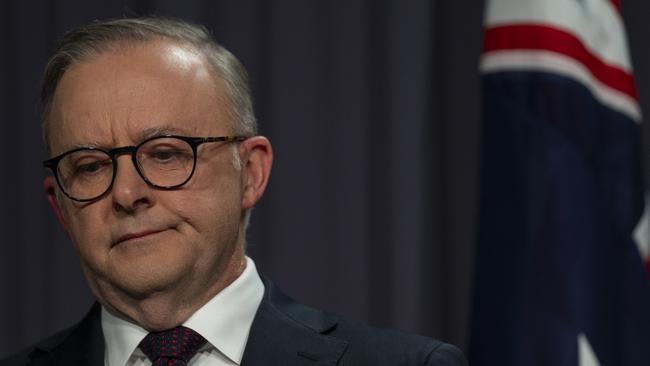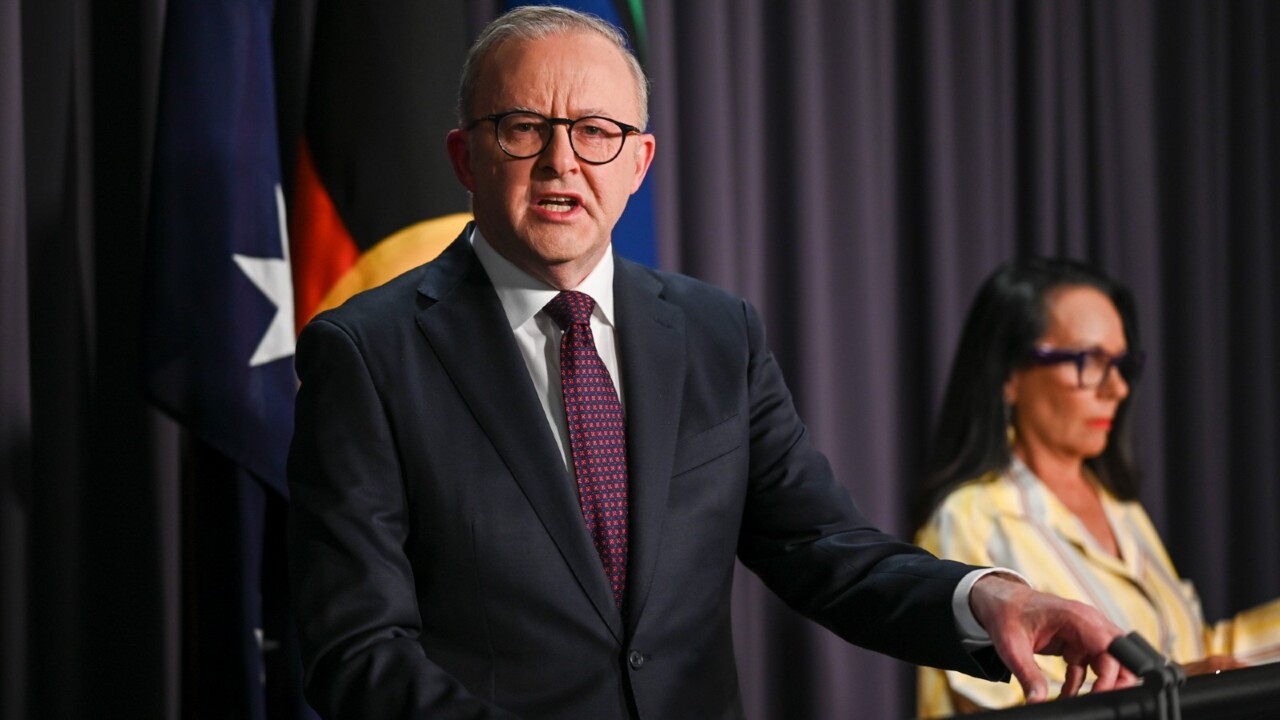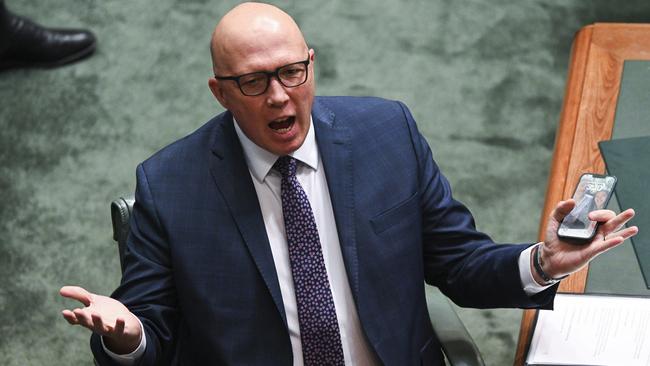Anthony Albanese’s approval ratings now deep into negative territory after Voice failure: Newspoll


Not that Albanese is under any immediate danger. But the latest Newspoll results are unquestionably damaging.
Albanese has clearly suffered significant political harm from getting it so wrong on the voice referendum.
The Prime Minister is now deep into negative territory for the first time – numbers that are more reflective of his period as opposition leader.
More voters now say they disapprove of Albanese’s performance than Peter Dutton’s.
Other factors beyond the voice can’t be discounted.
Cost-of-living concerns and the pressures facing households remain paramount.
Albanese also hasn’t done himself any favours from being out the country as much as he has, although it would be hard to nominate which overseas trips he shouldn’t have taken.
The government’s response and the community’s divisions over the Hamas terrorist attack against Israel, and the IDF’s retaliatory response in Gaza, could also be causing political damage
Albanese’s decline has been precipitous.

In July, his approval ratings were at 52 per cent, with a net satisfaction score of plus 11.
The first warning signs emerged a week before the referendum, when he briefly dipped into negative territory for the first time at minus 1.
That net approval rating has now fallen to minus 10 within the space of four weeks.
The broader Labor mission under his stewardship is also starting to suffer.
The two-party preferred contest has narrowed to 52-48, back in line with the election result. In July, Labor enjoyed a lead of 55-45 and had never fallen below 53-47 until now.
Labor still wins an election on these numbers. But the narrowing of the gap will be enough for some Labor hardheads to be getting nervous.
Coalition prime ministers Tony Abbott and Scott Morrison both went into negative territory more rapidly than Albanese.
It took 2½ years for Kevin Rudd’s approval ratings to dip significantly into negative territory after becoming prime minister. He was dispatched by his colleagues very soon after that.
As a Labor leader, the comparison with Rudd’s decline is relevant.
In April 2008, at the height of his powers, Rudd enjoyed an approval rating of 71 and a net result of plus 56. Albanese enjoyed a long period of similarly high approval ratings in his first year.
Following the scrapping of the emissions reduction scheme, Rudd’s numbers began to decline to the point where in April 2010, he dipped into negative territory for the first time at minus 11. It quickly went to minus 19 before he was rolled.
While Rudd always had Tony Abbott’s measure as preferred prime minister, this number had contracted to a gap of just nine points at the time of his departure.

With the preferred prime minister numbers usually skewed in favour of the incumbent, Albanese will be worried that his lead over Peter Dutton has narrowed to similar margins. Even more so because of Labor’s belief that Dutton is unelectable.
Yet the electoral assessment of the Albanese government’s performance post-referendum is a story of gradual decline.
Whether this will be a short-lived reaction to events, or an historical moment that marks the beginning of a concerning trend for the government, remains to be seen.
Support for the Coalition remains considerably subdued. The Liberal/Nationals have no prospect of winning an election if they can’t elevate a poor primary vote of 37 back into the 40s. And there is no sign of this happening yet. But there is no doubt that the leadership gap is demonstrably narrowing, as is the broader party contest.
Considering where the Coalition was at the start of the cycle, it wouldn’t be unhappy about where it finds itself now.
And if this isn’t of concern for Labor and Albanese, it should be.






Anthony Albanese has achieved an unenviable milestone within 18 months. He has exhausted all his political capital and now Labor’s ascendancy is in retreat.